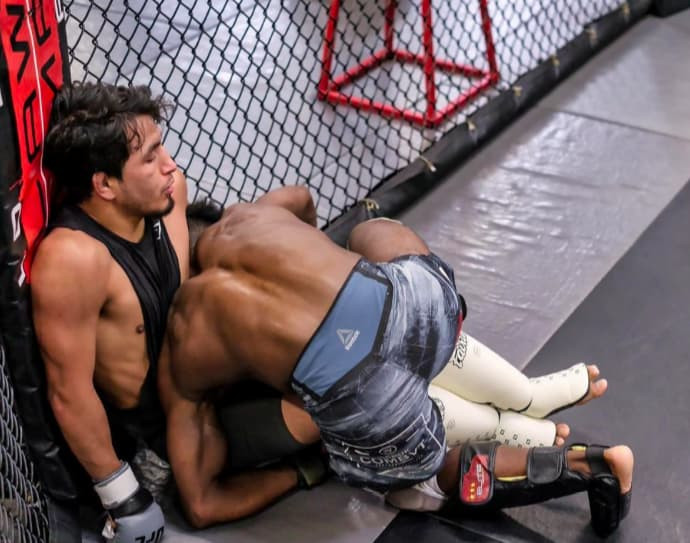The Psychology of a Fight: Dominance vs Confidence

When people start learning jiu-jitsu, they tend to be the most interested in submissions. After all, the easiest way to defend yourself is to quickly neutralize your opponent by putting them into a hold that ends the fight. In some cases, fighters are interested in getting an opponent to tap not only to end a fight, but to demonstrate dominance.
Dominance is more than just prevailing in a fight. When one demonstrates dominance in a fight scenario, it implies that another person has submitted. More than just tapping, they have submitted to the will of the dominant person. Showing dominance is not only physical, but psychological, too.
For Lex Fridman, the host of the Lex Fridman Podcast, this kind of psychological framework exists even when it comes to escaping. As he suggests in the below clip from his podcast with world-renown jiu-jitsu and mixed-martial arts trainer John Danaher, escaping shows your opponent that you cannot be dominated. If they are throwing their best moves at you, and nothing seems to work, it can be a major psychological blow.
John has a slightly different perspective, and it revolves around the idea of confidence.
Confidence and Dominance
Dominance is an outward projection of power. Dominance imposes. It subjugates. It is active. Confidence is power directed inward. It is also active, but more importantly it is stability. It is faith in oneself.
These attributes are not opposites. Rather, they almost always work together. If you are not confident, you’re not going to dominate or be a very good jiu-jitsu fighter even if you spend years learning technique and condition and strength train. “You can train someone and teach them technique until you’re blue in the face, but at some point the athlete in question has to go out there on the stage and pull the trigger when the time is right,” John says.
To go from acquiring the physical capability to perform certain moves to executing under pressure, fighters need to have confidence. “Building that confidence is key to championship performance,” John says.
Building Confidence
According to John, the best way to build confidence is to take away that innate fear of failure and bad outcomes. When you have faith in yourself and your abilities, you will take risks. You will go on the offensive. If you have no confidence, you will be risk averse. You will shy away from opportunities because you do not want to leave yourself exposed. In other words, without a solid bedrock of confidence that you will be able to get out of bad situations, you will be too timid to build anything worthwhile. If you know how to do an arm bar, but you know that failing to do the arm bar could lead to your opponent passing your guard and ending up in mount, and you don’t know how to get out of mount, then you won’t pull the trigger on the arm bar.
For John, the best way to eliminate this kind of fear of failure and to establish confidence is to spend a significant amount of time practicing escapes. Granted, escapes are not fun. Starting from an inferior position with your partner and devising strategies to free yourself means you are going to lose again and again. Moreover, it sounds daunting. After all, you want this confidence to be universal, so you have to learn how to escape from loads of positions.
However, John notes that there’s only a few ways that you’re going to lose in a jiu-jitsu match. It may be an armbar. It may be a guillotine. It may be a handful of other moves and it may be from a few positions like rear mount or side control. As you’re devising a defense, just work backwards from these points. As you identify the moments of critical failure, you’ll be able to figure out ways to correct them.
Confidence and Survival
Ultimately, the idea of confidence goes back to the founding principle of jiu-jitsu, which is survival. Grandmaster Hélio Gracie stressed that a combination of endurance and technique will always prevail over strength and speed. If you are able to weather the storm and can endure anything your opponent tries because you are an escape artist rivaling Houdini, then you are going to survive. More importantly, you are eventually going to find more opportunities because your opponent will become exhausted.
As Grandmaster Gracie said, “If you don’t lose, you can only win.”

